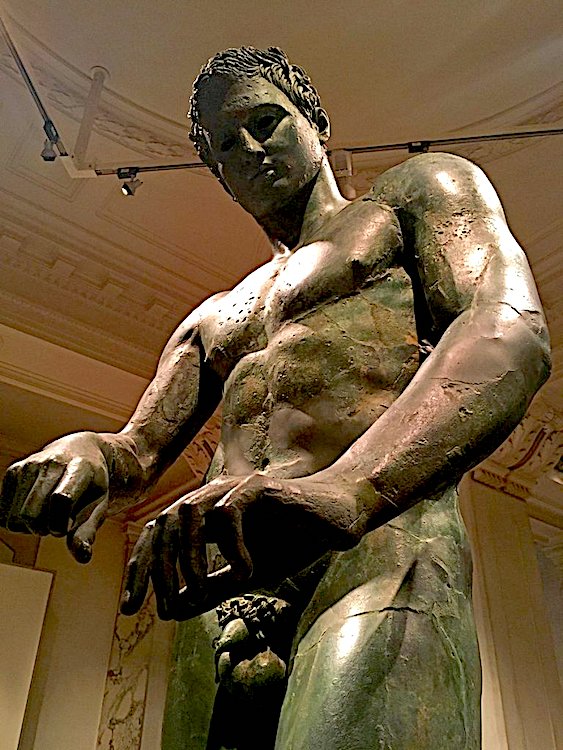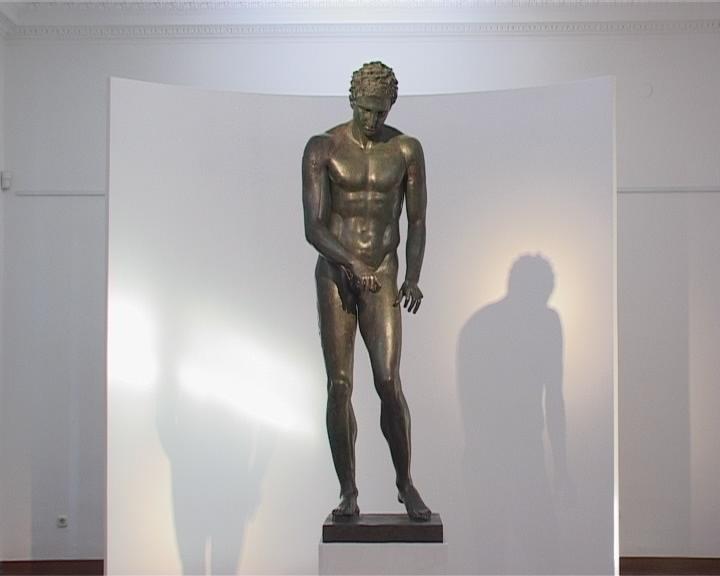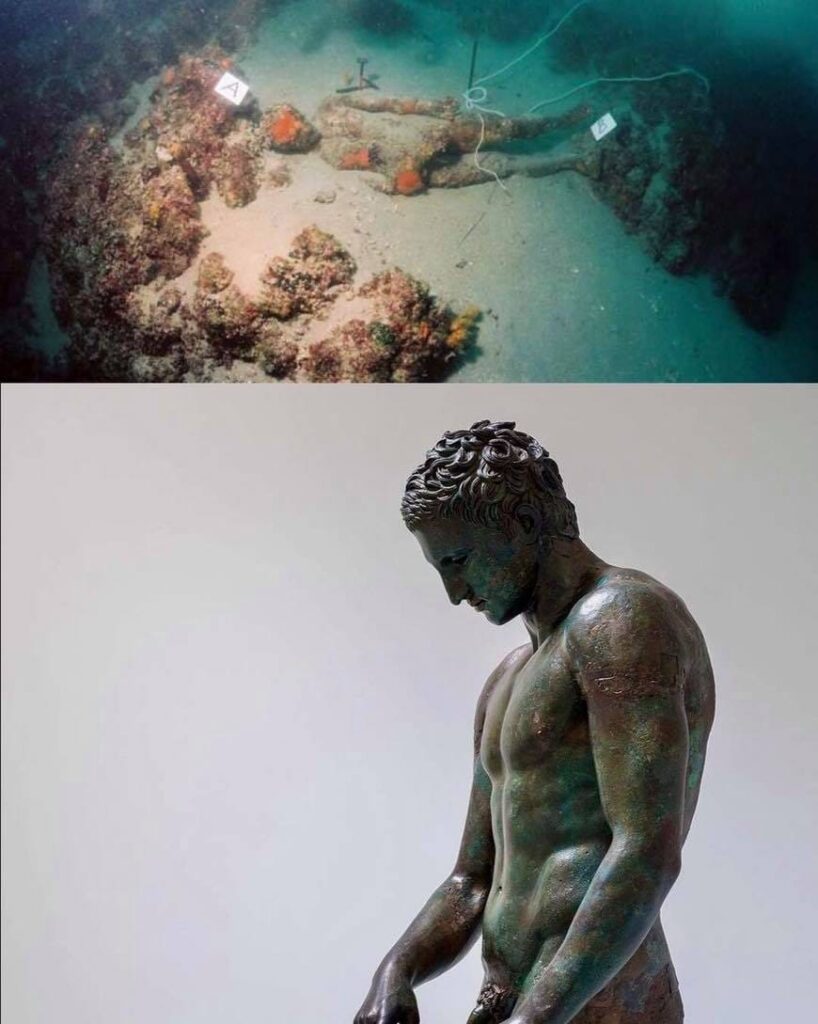In the depths of the Adriatic Sea off the coast of Croatia, a remarkable ancient Greek statue dating back to the 2nd or 1st century BC lay hidden for centuries. This bronze figure, known as the Croatian Apoxyomenos, depicts an athlete performing the act of scraping sweat and dust from his body. Its discovery in 1996 by Belgian tourist and avid diver René Wouters has since captivated art historians and the public alike.
Wouters stumbled upon the statue while diving near the small islet of Vele Orjule, finding the bronze figure lying on the sandy seabed at a depth of around 45 meters. Recognizing the significance of his find, Wouters promptly reported the discovery to the Croatian Ministry of Culture in 1998. In 1999, a team of divers carefully raised the statue from the sea, marking the beginning of a remarkable restoration process.
A Rare and Exceptional Artifact

The Croatian Apoxyomenos stands at an impressive 6 feet 3.5 inches (1.92 m) in height and is mounted on a 10-centimeter (3.9 in) high original bronze base. The base is decorated with a repeating pattern of alternating square and swastika motifs, a design that has sparked debate among art historians. Based on the statue’s stylistic features and the radiocarbon dating of organic material found within it, experts believe the Croatian Apoxyomenos dates back to the 2nd or 1st century BC.
Of the eight known Apoxyomenos statues in existence, the Croatian example is the most complete and best-preserved. Unlike the famous Lysippos-attributed Vatican Apoxyomenos, the Croatian version keeps its hands at hip level rather than at the level of the forearm. This subtle difference, along with the exceptional quality of the casting and the statue’s overall beauty, suggest the work of a highly skilled ancient Greek sculptor whose identity remains unknown.
Insights into Ancient Greek Art and Culture

The Croatian Apoxyomenos offers a unique window into the artistic mastery and cultural traditions of the ancient Greek world. Art historian Antun Karaman has described the statue as embodying the transition from the classical Greek period, when “man, with the help of philosophy, begins to seek refuge in the invisible,” to the emerging Hellenistic era, which embraced a more relativistic and impermanent view of existence.
The discovery of organic materials inside the statue, including shards of wood, twigs, fruit seeds, and the nest of a small rodent, has also provided intriguing clues about the statue’s history. Radiocarbon dating of these materials suggests that the Apoxyomenos did not immediately fall into the sea after its creation but rather sometime between 20 BC and 110 AD, potentially during a storm that caused it to be thrown overboard from a Roman merchant ship.
Unresolved Mysteries and Ongoing Debate

The discovery of the Croatian Apoxyomenos has also sparked ongoing debate and unanswered questions among scholars. Archaeologists remain divided over whether the model for the sculptor was left-handed or right-handed, with some pointing to the more developed musculature on the left shoulder as evidence of a left-handed subject.
Furthermore, Croatian archaeologist Nenad Cambi has challenged the conventional classification of the statue as an “Apoxyomenos,” arguing that the figure is not actually cleaning his own body but rather the small curved instrument known as a strigil. Cambi believes a more accurate name for this type of statue would be the “Strigil Cleaner.”
A Lasting Legacy

The Croatian Apoxyomenos stands as a testament to the enduring legacy of ancient Greek art and the thrill of archaeological discovery. This remarkable bronze statue, raised from the depths of the Adriatic Sea after more than two millennia, has captivated scholars and the public alike with its exceptional preservation and the insights it offers into the artistic mastery and cultural traditions of the ancient Greek world.
Through the meticulous restoration process and ongoing research, the Croatian Apoxyomenos continues to reveal its secrets and spark new debates, ensuring that this ancient masterpiece will continue to fascinate and inspire for generations to come. The story of this captivating artifact is a testament to the power of archaeological discovery to unlock the mysteries of the past and shed light on the rich cultural heritage of the ancient world.
